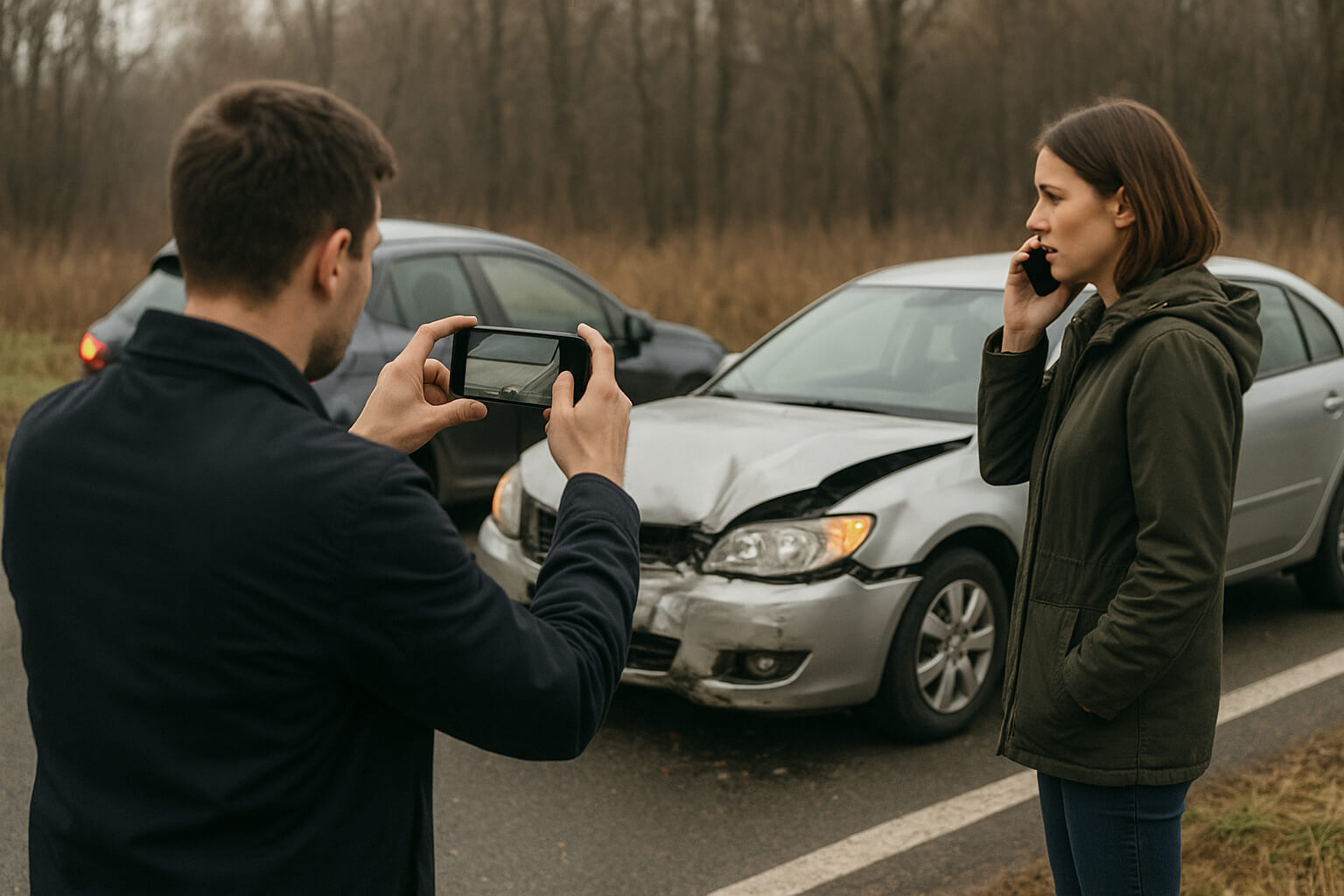Car accidents can happen in an instant—but their effects can last for months or even years. Whether it’s a minor fender-bender or a serious collision, the minutes following the crash are crucial. Your decisions in this high-stress moment will directly impact your safety, your ability to recover damages, and the legal strength of any future claim.
This guide offers a clear, strategic roadmap to follow immediately after a car accident—designed to protect your health, your rights, and your future.
1. Prioritize Safety and Call for Emergency Help
First things first:
- Check yourself and passengers for injuries. If anyone is hurt, don’t move them unless absolutely necessary.
- Turn on your hazard lights. This helps alert other drivers to the scene.
- Move to a safe location—but only if it’s safe to do so and your car is drivable. If not, stay inside the vehicle with seatbelts fastened until help arrives.
Always call 911:
- Even if the accident seems minor, request a police officer to file an official report.
- Ask for medical assistance if there are visible injuries or if anyone complains of dizziness, neck pain, or confusion.
Note: In some states, failing to report an accident can result in penalties or affect your insurance claim.
2. Exchange Information with the Other Driver(s)
Avoid confrontations or placing blame—just focus on gathering facts.
Collect the following:
- Full name and phone number
- Driver’s license number
- Insurance provider and policy number
- License plate number
- Vehicle make, model, and color
- Location of the accident (cross streets, landmarks)
Also jot down a brief description of the other vehicle’s condition and any passengers involved.
3. Document the Scene Thoroughly
Use your phone to take photos and video from multiple angles. This visual evidence can make or break an insurance claim or personal injury case.
Capture:
- Damage to all vehicles involved
- Skid marks, road debris, or oil spills
- Traffic signs, signals, and intersection layout
- Any visible injuries (cuts, bruises, swelling)
- Weather and lighting conditions
Pro Tip: Narrate a quick video describing what happened while it’s still fresh in your memory.
4. Identify and Speak With Witnesses
Look around—did anyone see what happened?
- Ask for their names, contact information, and a brief statement.
- Try to record their comments on your phone (with their permission).
Neutral third-party witnesses are especially important in cases where fault is disputed.
5. Get Prompt Medical Attention
Even if you feel “fine,” go see a doctor as soon as possible.
- Injuries like whiplash, concussions, or internal bleeding may not be immediately obvious.
- Delaying medical treatment can hurt your health and weaken your personal injury claim.
Keep records of all visits, diagnoses, treatments, prescriptions, and medical bills.
6. Notify Your Insurance Company
Report the accident to your insurance provider as soon as you’re able, even if the other driver was clearly at fault.
When speaking with insurance:
- Stick to factual details only.
- Avoid phrases like "I’m sorry" or "I didn’t see them,” which could be interpreted as admissions of fault.
- Don’t agree to give a recorded statement until you speak with an attorney.
7. Contact a Personal Injury Attorney Early
Even in seemingly straightforward accidents, having legal representation can maximize your compensation and protect you from manipulation by insurance adjusters.
A personal injury lawyer can:
- Investigate the accident
- Preserve and collect evidence
- Handle all communication with insurers
- Negotiate a fair settlement—or take your case to court if necessary
Learn more in Our Process: What to Expect During a Personal Injury Lawsuit with Our Firm.
8. Prepare for Your Legal Consultation
Before your first meeting with an attorney, gather everything related to the accident. This shows preparedness and allows your lawyer to evaluate your case more efficiently.
Bring:
- Police report (or incident number)
- Medical records and bills
- Photos, videos, and witness info
- Insurance policy and claim documents
- Repair estimates or vehicle damage reports
- Notes about how the injury affects your work and daily life
Use this Checklist for Your First Personal Injury Consultation to stay organized.
9. Know What Compensation You May Be Entitled To
A successful car accident claim may result in compensation for:
- Medical expenses (past, current, and future)
- Lost wages and reduced earning capacity
- Vehicle repair or replacement
- Pain and suffering
- Emotional distress or PTSD
- Long-term care and rehabilitation
- Wrongful death (if a loved one was lost)
Real-life results: A Look at Our Verdicts and Settlements
Bonus: What Not to Do After an Accident
- Don’t admit fault or speculate on causes
- Don’t negotiate directly with the other driver
- Don’t sign anything from an insurance company without legal review
- Don’t post details or photos of the accident on social media
Bottom Line
What you do in the minutes, hours, and days after a car accident can determine the outcome of your physical, financial, and legal recovery. By staying calm, documenting everything, and working with an experienced personal injury lawyer, you set yourself up for the strongest possible case—and the compensation you deserve.
